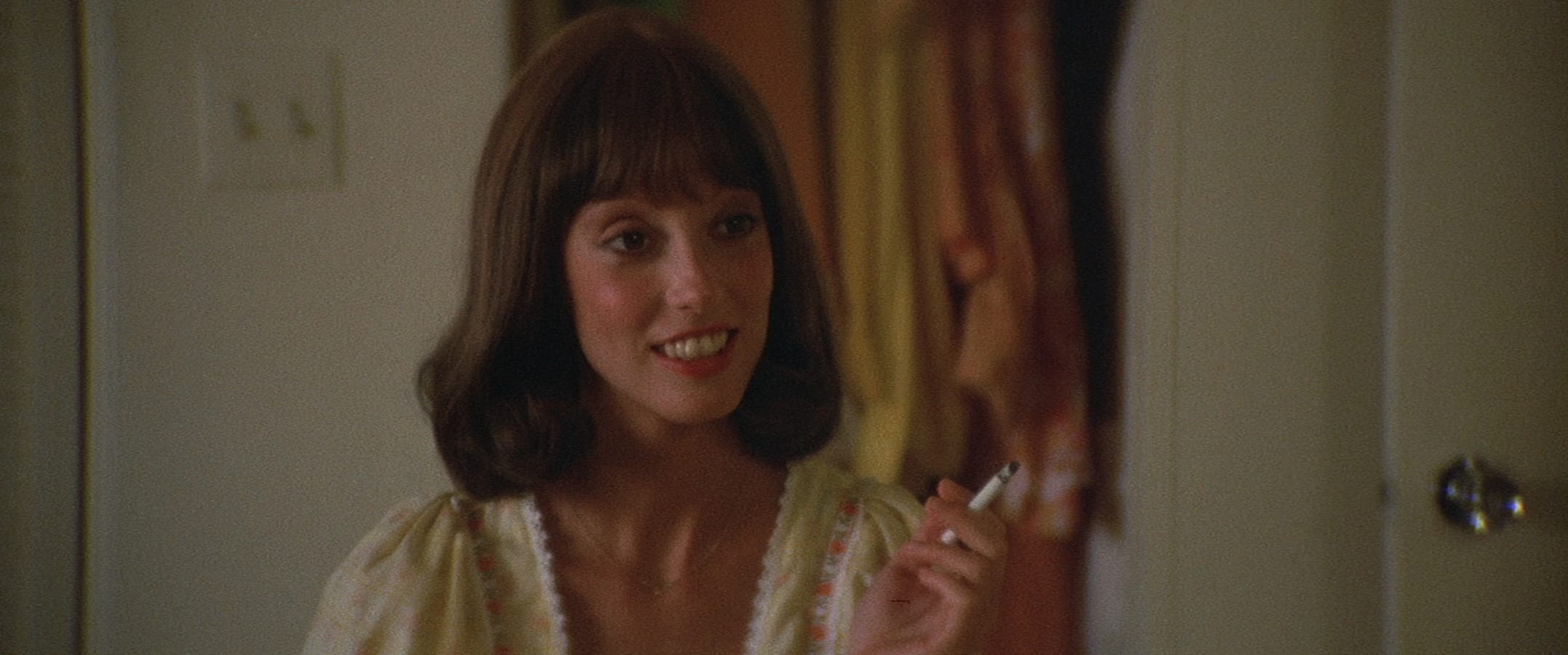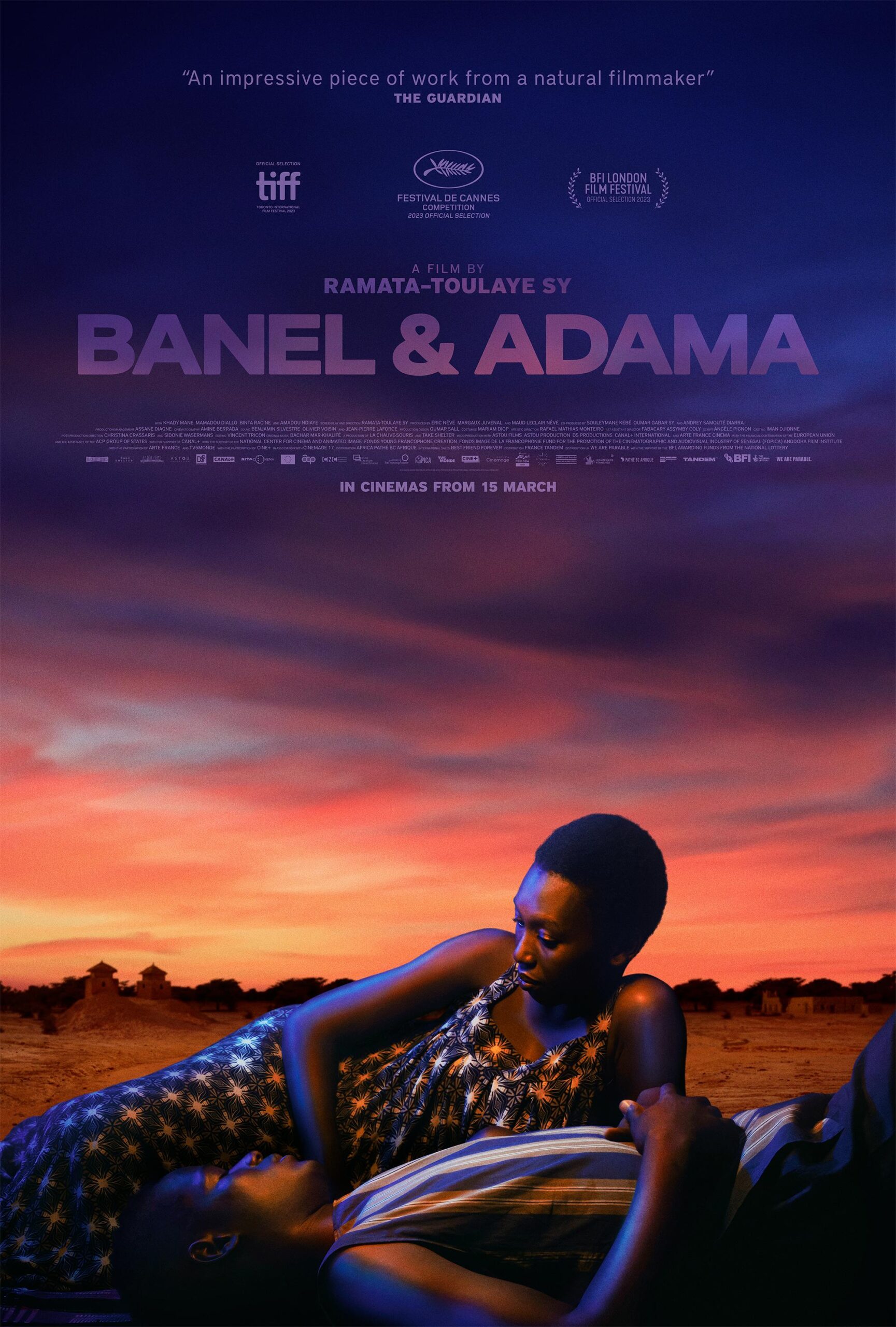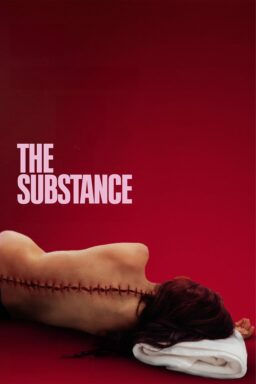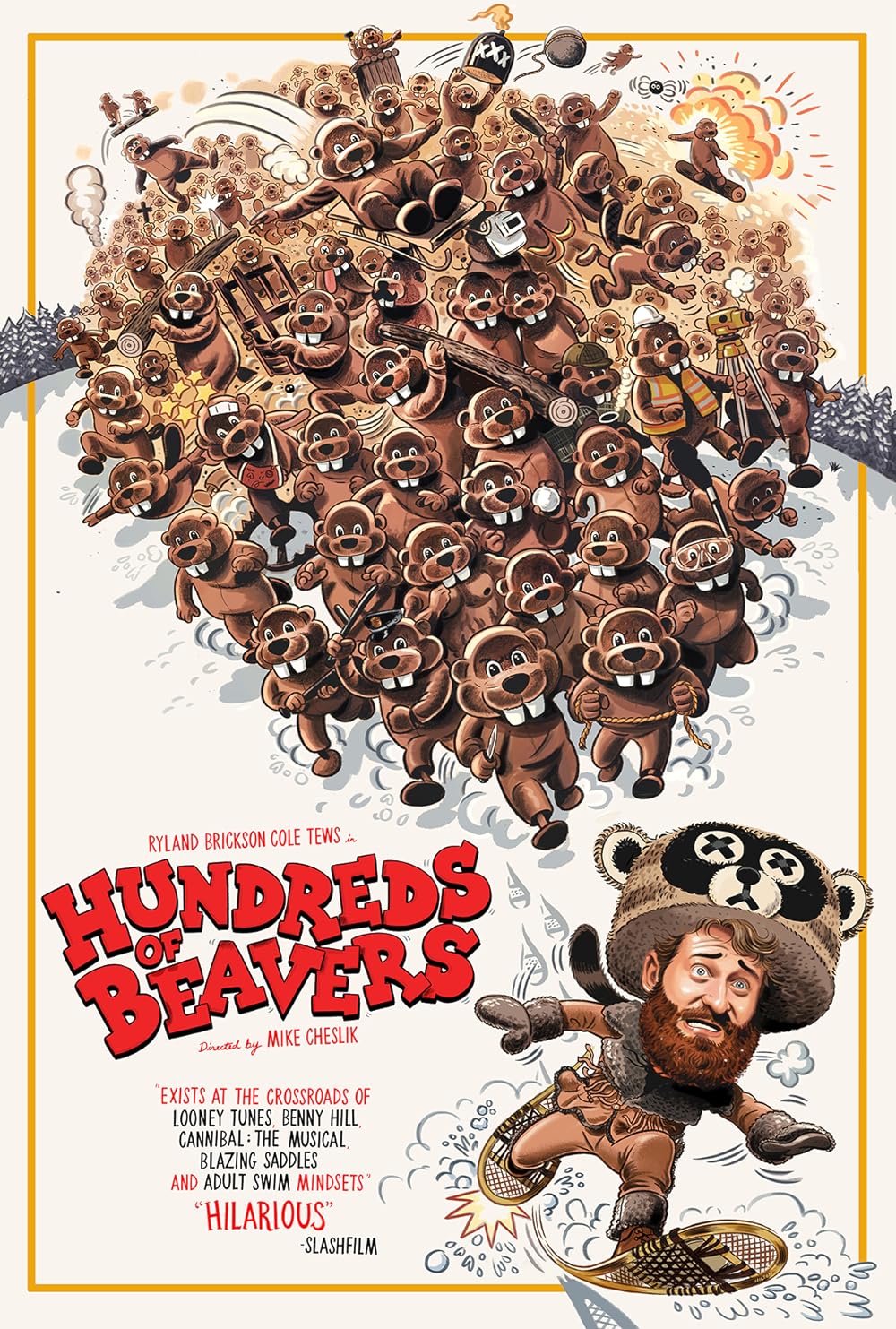When the news broke that Shelley Duvall died at the age of 75, many of us who loved her immediately thought back to the joy and sweetness she brought to our lives through her films. Although her battles with mental health and illness curtailed her career, her legacy is more than secure despite effectively retiring early this century. Duvall may not have enjoyed an imposing body of work comparable to many of her peers, but she had a 10-year stretch that was unimpeachable. Indeed, the history of 1970s American cinema—and, specifically, the output of Robert Altman—is incomplete without discussing her contribution. Duvall's large eyes, expressive face, off-kilter demeanor, and disarming charm distinguished her in an era of gritty character actors and polished movie stars. She was effortlessly captivating, demonstrating a light touch with either comedy or drama. And then she stunned us by stealing one of the 1980s' best horror films.
In honor of her passing, I've compiled a list of her five best performances. Quibble about the rankings all you'd like—such lists are subjective, of course—but there's no room for debate about her nonchalant greatness. With a nod to her superb work in everything from "Annie Hall" to "The Portrait of a Lady," which just missed the cut, here are her finest onscreen moments.
5. "Brewster McCloud" (1970)
Shelley Duvall had no intention of becoming a performer when she was a 20-year-old living in Houston, catching the eye of people working on Robert Altman's quirky comedy about an odd young man whose dream is to fly. "After about a month of wining and dining and explaining, I said, ‘Oh, all right, if you think I can do it, I guess I can,'" she later recalled. "I wasn't afraid of anything, because I didn't know any better. … Bob sorta discovered me. He's responsible for me being an actress." She made an immediate impression in "Brewster McCloud" as Suzanne, a bubbly Astrodome tour guide who befriends (and, later, romances) the sweet, virginal title character (Bud Cort). Duvall's ability to be both flighty and smart—sexy but innocent—paved the way for a career that found her consistently reuniting with the filmmaker who first noticed her big-screen potential.
4. "Thieves Like Us" (1974)
Largely overlooked at the time and currently unavailable anywhere on streaming, "Thieves Like Us" came out only a few years after "Bonnie and Clyde," with critics insisting that the film felt too reminiscent of that Warren Beatty/Faye Dunaway classic. Maybe the two movies have superficial similarities—Depression-era setting, bank robbing, young lovers—but director Robert Altman (adapting Edward Anderson's novel) has his own take on the milieu, viewing it as a fleeting paradise soon to be destroyed by the world's harsh realities.
Shelley Duvall and Keith Carradine had previously demonstrated a tender rapport in Altman's "McCabe & Mrs. Miller," but their characters' love story here is far more developed and touching. He plays the youngest member of a none-too-bright gang of crooks who falls for Duvall's simple local girl Keechie, their relationship far less flashy and hip than the one embodied by Beatty and Dunaway. Their love affair may be doomed, but Duvall is so winning—so guileless and free—that the memory of her beautiful character stays with you long after the picture ends, Keechie walking up those stairs in elegiac slow motion, her back turned to us.
3. "Popeye" (1980)
Duvall long knew it was her destiny to someday play Popeye's iconic love interest. "God, as a child I was so embarrassed when the kids would call me Olive Oyl because it meant you were as skinny as a rail, you had sparrow legs and an Adam's apple," she said in 1981. "I mean, who wants to admit she was born to play Olive Oyl?" The comparison might have been unflattering, but she was never lovelier than in Robert Altman's big-screen treatment of the E.C. Segar comics. With Robin Williams in his first film role as the muscled, pipe-chomping Popeye, Duvall was the perfect onscreen partner, Olive's indomitable sweetness complementing his outer gruffness. These two were meant to be together, and Duvall's ability to elevate her character beyond the string-bean caricatures remains magical. And her rendition of Harry Nilsson's love song "He Needs Me" is a total charmer—so much so that Paul Thomas Anderson included it in his own idiosyncratic romance, "Punch-Drunk Love."
2. "The Shining" (1980)
Stanley Kubrick and Shelley Duvall famously clashed on the set of this adaptation of Stephen King's novel, those behind-the-scenes stories clouding viewers' perspective on her titanic performance. Did the director berate her into submission, resulting in her playing Jack Torrance's wife Wendy as a feeble, ineffectual nincompoop—or as King later complained, "basically just there to scream and be stupid"? I think those impressions misunderstand her portrayal and also give her no credit for what she achieved. "The Shining" is about a monster, with Jack Nicholson at his most menacing, but it's also about a resilient woman trying to protect her son from that monster—one who existed long before the Torrances decamped to the Overlook Hotel.
See the film from her vantage point, and it's clear we're watching the story of an emotionally and physically abused wife who has tried her best to quietly endure her circumstance—that is, until the dangers become so life-threatening that she has to do something. This is no simple "scream queen" performance as Duvall makes Wendy's terror and determination grippingly, movingly real. Did Kubrick push her to extremes to reach such heights? Perhaps, but the accomplishment is Duvall's, full stop.
1. "3 Women" (1977)
The same year that Duvall had a brief but memorable role in the Oscar-winning "Annie Hall" playing a girlfriend of Woody Allen's neurotic comedian character, she delivered her finest performance as Millie, a woman who's far too confident about how interesting and desirable she is. Legendarily inspired by a nightmare Robert Altman had, "3 Women" was the director working in a dreamlike, "Persona"-esque vein, chronicling the tentative friendship between Millie and Pinky (Sissy Spacek), coworkers at a California health spa. The sociable, self-absorbed Millie takes newcomer Pinky under her wing, mostly so she can impress the meek Pinky with how cultured and sophisticated she is—a desperate act everyone else in the community has long since seen through.
Winning Best Actress at the Cannes Film Festival, Duvall created an incisive portrait of delusion that was equal parts hilarious and poignant. How many of us have met someone as clueless about their own importance as Millie? How many of us worry that we sometimes come across just like her? And as the movie shifts in tone, with its central figures inexplicably switching personalities, Duvall got to take on Pinky's timidity, bringing Millie's hidden vulnerability to the surface.
"She was wonderful in it," Altman later said. "She allowed the fool in her to show itself, what I call the ‘pink stuff,' what you normally don't show people. Real actors show the ‘pink stuff.' Millie's a victim of women's magazines and movies and everyone around her. She just repeats things that she thinks will make people like her, but she's totally alone." That insecurity and loneliness were heartbreaking—and a reminder of the fragile humanity Shelley Duvall brought to her best roles. She will be sorely missed.












